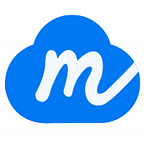The origins of DAO
The concept of DAO was first introduced in September 2013 by Daniel Larimer in response to Bitcoin’s unreasonable expenses. However, since Bitcoin does not have Turing completeness, DAO did not come into formal use until 2015, when Turing-complete Ether was launched.
On 6 May 2014, Ethernet founder Vitalik Buterin published an article entitled “DAO, DAC, DA, etc.: An Incomplete Guide to Terminology” detailing the potential for blockchain-based organizational governance.
Vitalik writes: “The idea of a decentralized autonomous organization is easy to describe: it is an entity that lives on the internet and exists autonomously, but also relies heavily on hiring individuals to perform certain tasks that automatons cannot do on their own.”
In 2021, DAOs have evolved from an insider concept to a mainstream consciousness, with a surge in both the number and the amount of money raised. It refers to an online community that emerges around a cryptocurrency project or a unified goal.
Some say that 2022 will be the year of the DAO, others say that the DAO will be the dominant theme in the crypto world, but either way, we can see that the DAO has come into the crypto spotlight and become one of the mainstream topics in the blockchain network.
What is a DAO and what are the characteristics of a DAO?
Decentralization
In general, a Decentralized Autonomous Organization (DAO) is a team built around a single goal, which is coordinated and collaborated through a set of shared rules implemented on the blockchain, which allows any member to make decisions and participate in governance.
Specifically, a DAO is a decentralized organization that operates on the blockchain. Its rules are coded into a computer program and made transparent, controlled by all project participants and not influenced by a central body. It is like a company with no CEO, no employees, no entity, no jurisdiction, no holders, and it operates primarily through a decentralized token governance process. The DAO’s rules are written into the program and automatically enforced according to the protocol. When specific conditions are triggered, the corresponding rules are automatically enforced.
A DAO is often thought of as a form of decentralization for a business or entity organization. While it makes more business and practical sense to understand DAOs at the level of physical organizations, we need to be clear that a DAO is not a specific organizational entity, but a generic form of organization whose management and operating rules are encoded on the blockchain in the form of a smart contract and can thus operate autonomously without centralized control or third party intervention. Through intelligent management tools and pass-through incentives, the DAO will be able to operate autonomously and govern itself, thus achieving maximum effectiveness. In addition, all decisions will be decided by voting on proposals, thus ensuring that everyone in the organization can express their views freely. DAOs are more secure and stable than traditional forms of organization, as no one can control the whole organization. And because DAOs run on permissionless, decentralized blockchain technology, they can remain autonomous from external interference.
Community driven
DAO has the added benefit of making it easier for communities around the world to connect and work together to build a vision of prosperity. Through internet connectivity and governance tokens, almost anyone can participate in building the future of Web3. Whether it’s shaping the future of a field such as a metaverse or creating a game to earn revenue, individuals who have the opportunity to participate can use DAO to achieve their goals.
And, like a shareholder who owns shares in a company, DAO participation gives a sense of belonging to the project, furthering development to reap more financial rewards.
Although a DAO is a ‘decentralized’ process, it cannot be without a ‘power centre’, and some of the criticisms that a project is ultimately controlled by a small group of people are not a flaw in a DAO. Any organization that wants to get decisions and tasks moving in an orderly fashion must have people making decisions, both upfront and down the line. The DAO addresses both the ‘decentralization’ of power, which empowers the participants to have a say in the project, and the ‘fluidity’ of power, which ensures that the decisive factor is the constant change of leadership.
What will the combination of MEMO and DAO bring?
Of course, as a project at the forefront of decentralized storage, MEMO has always been optimistic about the development of DAO in the field of decentralized storage and put it into practice. Perhaps the project that introduces the management model of DAO will be the real explorer of Web 3.0. In decentralized storage, data is the top priority and privacy and security are the necessary attributes of a good decentralized storage project. In the current Internet-style team model, even if the traditional data security technology is changed still may not guarantee absolute data privacy, after all, no one knows if there will be privacy theft in a team, and the emergence of DAO can precisely solve this problem by assigning relatively equal power to everyone involved, abolishing centralized power through decentralization, and users using their own power to secure their own data and at the same time monitor the actions of other users across the network.
MEMO’s in-depth research in this model of DAO will on the one hand better ensure the privacy of users’ data, and on the other hand will ensure the quality of a wide range of nodes worldwide, better balance the relationship between the triple roles of User, Provider and Keeper, and greatly enhance the user experience.
This check and balance approach not only allows each participant to be an important part of the team, but also establishes more practical solutions for the development of the product. Therefore, the existence of DAO ensures data security on the one hand, and continues the vitality of decentralized storage on the other.
